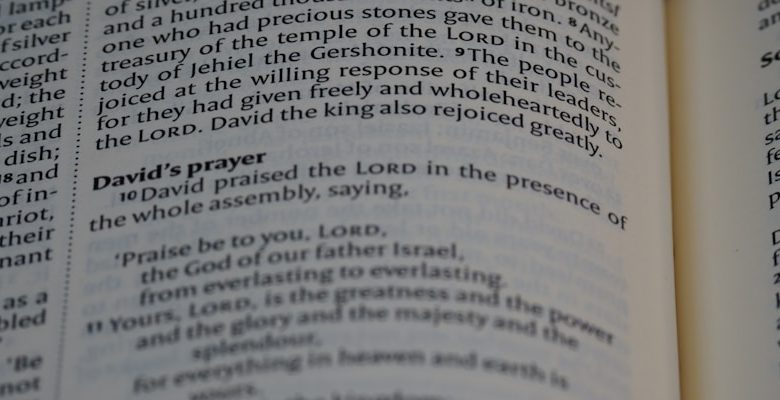The Role of Oracles in Expanding DeFi Use Cases

- Understanding the importance of oracles in the DeFi ecosystem
- Exploring the various types of oracles used in decentralized finance
- How oracles enable DeFi projects to access real-world data
- The role of oracles in ensuring security and reliability in DeFi applications
- Challenges and limitations faced by oracles in the DeFi space
- Future outlook: the evolving role of oracles in expanding DeFi use cases
Understanding the importance of oracles in the DeFi ecosystem
Oracles play a crucial role in the decentralized finance (DeFi) ecosystem by providing reliable external data to smart contracts. These data feeds are essential for enabling DeFi applications to interact with real-world information, such as price feeds, weather conditions, or sports scores. Without oracles, DeFi protocols would be limited to operating in a closed environment, disconnected from the external world.
By leveraging oracles, DeFi platforms can access a wide range of data sources to power various use cases, from decentralized lending and borrowing to prediction markets and insurance. Oracles act as bridges between the blockchain and external data sources, ensuring that smart contracts can execute accurately based on real-time information. This functionality is crucial for expanding the capabilities of DeFi applications and attracting a broader user base.
In essence, oracles serve as the eyes and ears of DeFi platforms, enabling them to interact with the outside world in a trustless and decentralized manner. By providing reliable data inputs, oracles help to increase the transparency, security, and efficiency of DeFi transactions. This, in turn, enhances the overall user experience and fosters greater trust in the DeFi ecosystem.
Overall, understanding the importance of oracles in the DeFi ecosystem is essential for grasping the full potential of decentralized finance. By facilitating the seamless integration of external data into smart contracts, oracles enable DeFi applications to offer a wider range of use cases and unlock new opportunities for innovation and growth. As the DeFi space continues to evolve, the role of oracles will only become more critical in driving its expansion and adoption across the financial industry.
Exploring the various types of oracles used in decentralized finance
Decentralized finance (DeFi) relies on oracles to provide external data to smart contracts, enabling a wide range of use cases. There are several types of oracles used in DeFi applications, each with its unique characteristics and benefits. Let’s explore some of the most common types:
- Price Oracles: Price oracles are used to fetch real-time price data from various sources such as centralized exchanges, decentralized exchanges, and aggregators. This data is crucial for DeFi protocols that need accurate pricing information to execute trades, calculate interest rates, and more.
- Random Number Oracles: Random number oracles generate unpredictable random numbers for applications like gambling, lotteries, and other games. These oracles ensure fairness and transparency in DeFi platforms that rely on random outcomes.
- Event-based Oracles: Event-based oracles provide data on specific events or triggers, such as weather conditions, sports scores, election results, and more. DeFi applications can use this data to automate actions based on external events.
- Computation Oracles: Computation oracles perform complex computations off-chain and provide the results to smart contracts on the blockchain. These oracles are useful for DeFi applications that require heavy computational tasks or access to external APIs.
By leveraging different types of oracles, DeFi projects can expand their use cases and create innovative solutions that were not possible before. It is essential for DeFi developers to choose the right oracle solution that meets their specific needs and ensures the security and reliability of their applications.
How oracles enable DeFi projects to access real-world data
Oracles play a crucial role in enabling DeFi projects to access real-world data, which is essential for the functionality of decentralized applications. By connecting blockchain smart contracts with external data sources, oracles act as bridges that bring off-chain information onto the blockchain. This real-time data can include price feeds, weather updates, sports scores, and more.
Through oracles, DeFi projects can leverage this external data to trigger smart contract executions automatically. For example, a decentralized insurance platform may use an oracle to verify weather conditions in a specific location before processing a claim related to crop damage. This automation streamlines processes and reduces the need for manual intervention, enhancing the efficiency and reliability of DeFi applications.
Furthermore, oracles help to ensure the accuracy and integrity of external data by using consensus mechanisms and reputation systems. Multiple oracles can provide the same data, and discrepancies are resolved through voting or other verification methods. This decentralized approach minimizes the risk of data manipulation or inaccuracies, enhancing the trustworthiness of DeFi applications that rely on external information.
The role of oracles in ensuring security and reliability in DeFi applications
Oracles play a crucial role in ensuring the security and reliability of DeFi applications. They act as intermediaries that fetch and verify real-world data and feed it into smart contracts on the blockchain. By doing so, oracles enable DeFi applications to interact with external data sources, such as price feeds, without compromising the integrity of the system.
Without oracles, DeFi applications would be limited to using only on-chain data, severely restricting their functionality and use cases. Oracles expand the possibilities of DeFi by providing access to a wide range of external data, enabling applications to offer services such as decentralized lending, prediction markets, and insurance.
However, the reliance on oracles also introduces potential security risks. Malicious actors could manipulate the data provided by oracles, leading to inaccurate outcomes and financial losses for users. To mitigate these risks, DeFi projects must carefully select reputable oracles with proven track records of reliability and security.
In conclusion, oracles play a vital role in expanding the use cases of DeFi applications by enabling them to interact with external data sources. While oracles bring significant benefits to the DeFi ecosystem, their use also comes with security challenges that must be addressed to ensure the integrity and trustworthiness of decentralized finance platforms.
Challenges and limitations faced by oracles in the DeFi space
Oracles play a crucial role in expanding the use cases of decentralized finance (DeFi) by providing external data to smart contracts. However, oracles face several challenges and limitations in the DeFi space that need to be addressed for the ecosystem to reach its full potential.
- One of the main challenges faced by oracles is the issue of data accuracy. Since oracles rely on external sources for information, there is a risk of inaccurate or manipulated data being fed into smart contracts, leading to incorrect outcomes.
- Another limitation is the problem of centralization. Many oracles are centralized entities, which goes against the decentralized nature of DeFi. This centralization creates a single point of failure and introduces vulnerabilities to the system.
- Oracles also struggle with the problem of latency. The time it takes for data to be fetched, verified, and transmitted to smart contracts can introduce delays and inefficiencies in DeFi applications, impacting user experience.
- Security is another significant concern for oracles in the DeFi space. Oracles are prime targets for hackers looking to manipulate data feeds and exploit vulnerabilities in the system, posing a threat to the integrity of smart contracts and user funds.
- Furthermore, the lack of standardization and interoperability among different oracles can hinder their widespread adoption in the DeFi ecosystem. Different oracles use varying protocols and formats, making it challenging for developers to integrate them seamlessly into their applications.
In conclusion, while oracles have the potential to revolutionize DeFi by connecting it to real-world data, they must overcome these challenges and limitations to ensure the security, reliability, and efficiency of the ecosystem. Addressing these issues will be crucial for the continued growth and adoption of DeFi in the future.
Future outlook: the evolving role of oracles in expanding DeFi use cases
Looking ahead, the future outlook for DeFi and oracles is promising as the role of oracles continues to evolve and expand. Oracles play a crucial part in enabling DeFi platforms to access real-world data securely and efficiently, opening up a wide range of use cases across various industries.
As DeFi projects continue to grow in popularity and complexity, the demand for reliable and decentralized oracles will only increase. Oracles will be essential in providing accurate price feeds, enabling automated smart contract executions, and facilitating seamless interactions between on-chain and off-chain data sources.
With the advancements in oracle technology and the integration of various oracle solutions, DeFi platforms will be able to offer innovative financial products and services, such as decentralized lending, insurance, prediction markets, and more. This will not only enhance the functionality of DeFi applications but also attract a broader audience to the decentralized finance space.
Furthermore, the evolving role of oracles in DeFi will lead to increased security, transparency, and efficiency within the ecosystem. By leveraging multiple oracles and implementing robust security measures, DeFi platforms can mitigate the risks associated with data manipulation, price inaccuracies, and other vulnerabilities.
In conclusion, the future of DeFi and oracles is bright, with endless possibilities for expanding use cases and driving the mainstream adoption of decentralized finance. As the DeFi ecosystem continues to mature and innovate, oracles will play a vital role in shaping the future of finance and revolutionizing the way we interact with digital assets and decentralized applications.



